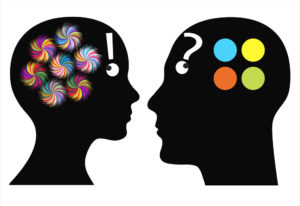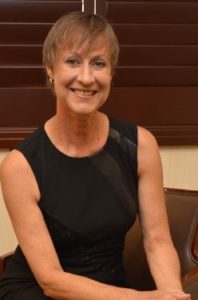 I wasn’t sure what I was going to write in this blog article. I had a general idea, and I trust the process of starting to type into a Word Document, with the intention of writing a short article that provides value to those coaches who read it.
I wasn’t sure what I was going to write in this blog article. I had a general idea, and I trust the process of starting to type into a Word Document, with the intention of writing a short article that provides value to those coaches who read it.
I thought of a person I heard speak last week, on his book called, “Not Knowing.” Stephen D’Souza provided a compelling presentation based on his book. I was excited by what he was saying. Yet in this moment, I cannot tell you what I remember from his talk. But I do know that I don’t need to know the details, as something resonated that has stayed with me as a ‘state of being.’ I’ve now purchased Stephen’s book and I’m looking forward to reading it.
Not Knowing doesn’t mean not knowing anything
The concept of Not Knowing is such an important mindset for masterful coaches, and those aspiring toward mastery. Not Knowing means being in the moment. You have to first ‘know’ how to structure a coaching session, and how to structure coaching questions. The Not Knowing is a mindset, rather than a reality. Of course you ‘know’ a lot. Yet the client will benefit more from your Presence and being where they are, than if you default to bring your ‘knowing’ mindset to the client. I don’t want it to sound black and white. It’s not. We have knowledge, skills…and we don’t know in this moment what is best for this client. Remain curious, present and responsive.
Improv as a way to improve coaching agility
Then I thought of my very wise husband, Michael Stratford, MCC who is a masterful trainer of coaches, a mentor, and a transformative coach. About 18 years ago, he said to me that being in the present moment with your client is the most powerful place to coach from. Not in the past, not in the future, but in this present moment.
Once you know the basic coaching skills and how to structure a coaching session, there comes a time where, in order to keep improving, you need to go beyond using standard coaching questions and expand your ability to fully customize questions and observations to each client. You need to improve your agility in the moment, to go deeper into the client world.
To practice working with clients in the moment, he recommends every coach take Improv classes. As a trained Actor, he was aware of how Improv supports working with the moment.
Improv is abbreviated from Improvisation, “a form of live theatre in which the plot, characters and dialogue of a game, scene or story, are made up in the moment. An American television show called, “Whose Line Is It Anyway?” was based on improvisation, with four actors working with what the studio audience gave them as characters and a storyline. I believe there is a newer version of the 1998 show still being aired.
I can’t say that Improv is my first love. However, I appreciated what the purpose of Improv is, and how it could grow my capability to be more present, and work ‘off the moment’ with my clients. On Michael’s suggestion, I enrolled in a semester long Improv class many years ago, and indeed I learned a lot about working off the moment. It’s not lost on me that Improv is one letter away from Improve!
Yes and…
One of the first rules of Improv is to “agree and say yes” to the moment. So often in life, disagree first by saying, “No, but” or even “Yeah, but.” Improv teaches us to have the mindset of, “Yes and.” When improvising, you agree with whatever your partner has created. If your partner in an Improv exercise says, “I’m a private chef for a famous couple.” Then you say, Yes. And work from there. You don’t say, “No but I don’t know anything about being a private chef.” You go with the flow such as, “I can smell the lasagna cooking.” Then your partner responds from there. The essence is to work with ‘what is’ being presented, rather than what you think you should be talking about. Lasagna, not Spaghetti.
Improv-ing our listening skills
This is such a great mindset for being present with our coaching client. To work from the moment, what the client is presenting which could be in words, emotion, tone, energy, body language, and more. Listening is not just words, it’s so much more.
To listen to our clients and what is happening in this moment, means we work with the client in their world. If they want to create a new business, the Improv approach is to be where the client is such as, “What do you have in mind?” “What emotions does that evoke in you?” “What’s the experience you want to have when creating a new business?”
The coach who has consulting or personal expertise in creating a new business, might instead default to what they know, cautionary tales, and “Yeah but” type questions. “Yeah but have you thought of what that means in terms of your income in the short term?” The timing is not for these types of questions. We work with where the client is, not from our technique, tool, or approach. We don’t say, “Why do you want to start a business when you’re at the top of your organization and making a difference?” While it might be a good question, being in the moment and going with the flow of where the client is, takes presence and practice.
In closing….
Consider enrolling in a semester long Improv course in your local area. Perhaps through a local theatrical company. Research in your area.
How comfortable are you with:
Not Knowing what question you’ll ask your client next?
Being in this moment with where your client is?
Going with the client flow rather than your flow?
Are you preparing for your first or next ICF Credential?
Do you want to “Sharpen the Saw” as a Coaching Professional?
Two Mentor Coaching Group Programs now open on a first registered and paid basis. Maximum of 6-10 participants per group.
NEW! Group #37 is PCC skill level / ACC Re-certification – August 27, 2019
NEW! Group #38 is MCC skill level – commencing August 28, 2019
 I offer a rich, experiential mentor coaching group and individual program that has many exclusive offerings for our participants. You can read some testimonials here
I offer a rich, experiential mentor coaching group and individual program that has many exclusive offerings for our participants. You can read some testimonials here
I have been trained by the ICF to assess using the PCC Markers. I also regularly assess for the ICF MCC and ACC credentials.
One of the unique offerings is an extensive library of MCC, PCC and ACC coaching sessions for participants to listen to, evaluate, debrief, and learn from, along with The Target Approach to demystifying the ICF core competencies. These are incredibly valuable learning tools, and will accelerate your understanding of competency distinctions.
Carly has created products to more deeply understand Establishing the Coaching Agreement and Ten Characteristics of MCC Skill Level.
Here’s where you’ll find more about The Mentor Coaching Group
